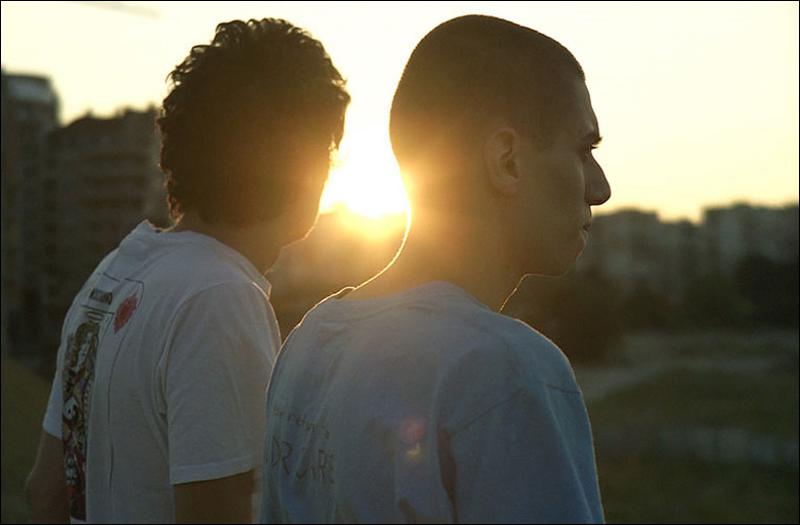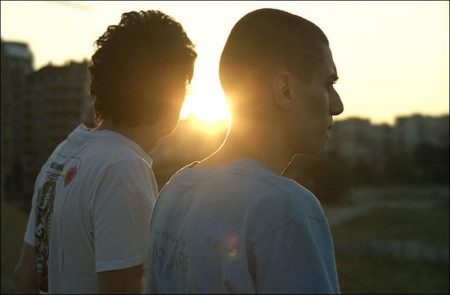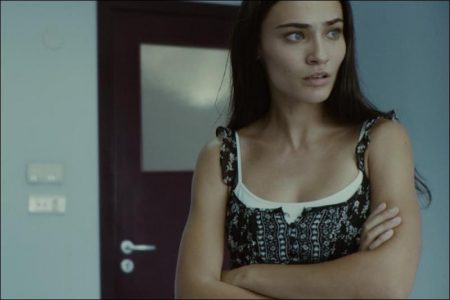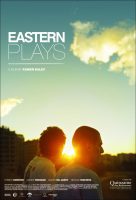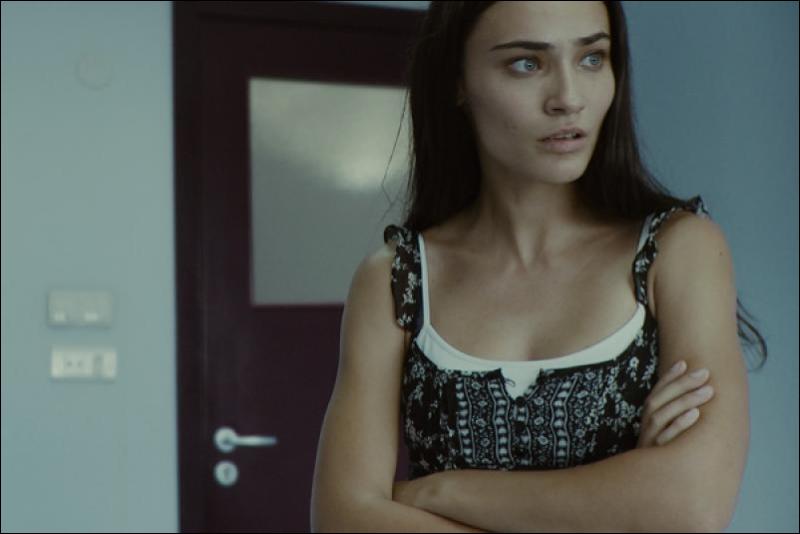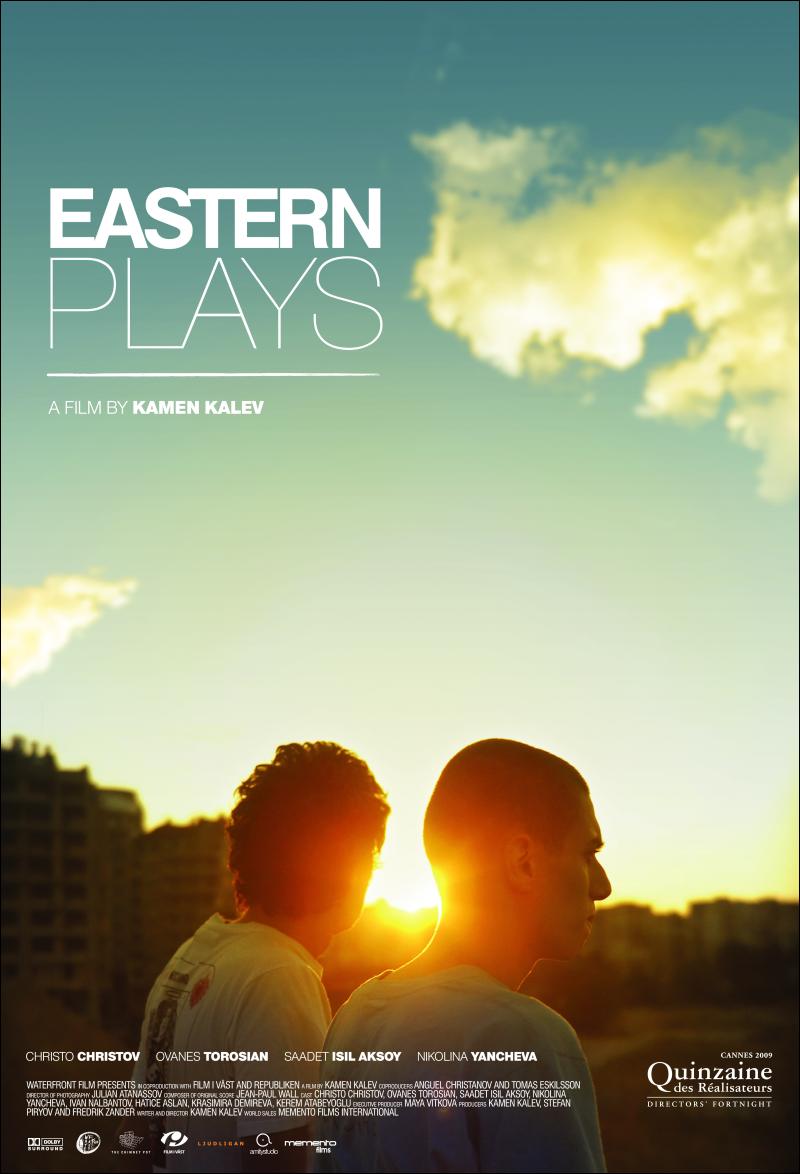Director’s Note
The Real Christo
The idea of making a film about Christo had been on mind for quite some time. We grew up together in the same town by the sea. And then we lost touch for a long time. A few years ago we ran into each other and had so much to talk about. He didn’t seem to have changed, at least physically; but slowly he began to confide in me and I realized the depths of his despair. The difference between his seemingly peaceful and nonchalant self and his dire inner suffering fascinated me. He had no energy left to confront this destructive force inside.
In the narrative, I used many elements from Christo’s real life; most of the scenes actually happened and were shot in the places he lived: his apartment, his streets, his workplace. His girlfriend Niki was his real life partner. In the beginning, I had no idea who was going to play the character ‘Itso’. I wanted the film to feel almost like a documentary, which then made me realize it would be best for Christo to play himself. It became clear that with an actor the film would lose so many of the unique details which fascinated me about Christo – from his physical presence to his spontaneity and non.conformism.
I offered him the role and he accepted without hesitation. His screen.tests were perfect as he remained himself, unfettered by the camera’s presence. From that moment on, I felt energized and ready to trust in the spontaneity of things. The entire crew felt this special energy and we improvised with our surroundings and things that seemed to appear from nowhere. These unforeseen elements gave body and meaning to the movie.
The spiritual liberation of man remains a personal experience. Christo is no longer with us, but I am certain that his soul is free. Christo is dead. His vibrant force in the film was suddenly cut short in real life. I had left quite a few scenes to shoot with him with a reduced crew in the fall. The shots of Itso in the concert scene are from pieces we shot while in preproduction. We came upon the end of the film in the editing room. We had so much more to do together, not just for the film.
Brother & Daughter
The Characters of Georgi, the little brother, and Isil, the Turkish girl, are entirely fictional. I wanted to juxtapose Georgi with Itso, in order to observe and understand how confusion and alienation are born.
Family, friends, city and country take part in conditioning human beings, and then these conditioned beings are in constant con..ict with the very same environment that conditioned them. What interested me in this comparison was to follow how the little brother became like his older brother. Georgi’s addiction or Neonazi gangs are mere illustrations of the same thing.
I was looking for a way to illustrate Itso’s past, the origin of his suffering, without showing it too directly. The character of Georgi – his 17 year old little brother – illustrates the beginning of Itso’s alienation. Everything surrounding Georgi – his parents, his friends and the city Sofia . leave him confused. His spiritually handicapped parents only prolong their suffering through their own children.
I find the notion of parental responsibility interesting. When the two brothers meet up again, they finally communicate. They see each other as they would looking into a mirror. One looks into the past, the other into the future – yet both are lost and afraid. And the reason the two brothers meet is because of the young Turkish girl, Isil. She speaks of strange things, of souls born again and a world that trembles. She is teeming with a different kind of creative energy.
Itso and Isil’s relationship is unique. I didn’t want them to be physically attracted to each other so that their bond would transform into a typical love story. To me, Isil just had a transformative experience and she needs to share it. Both characters are very open and their positive energy begins to circulate freely. This energy goes beyond nationalities or any other label that people can invent. Many Bulgarians still feel hatred towards our Southern neighbors. Five hundred years of Ottoman rule has weighed heavily. A Turkish girl can easily be poorly perceived. Anything can be imagined: from the Sultan’s daughter to an illiterate daughter of gastarbeiter (guest.workers) heading to Berlin.
Neo Nazis and Borders
Neonazi movements are not more present in Bulgaria than in any other European country. Intolerance isn’t exclusive to single country. Intolerance does not only belong to right wrong political forces. All politicians have the same character trait: Hypocrisy.
We are not taught tolerance. Quite to the contrary, people expend enormous amounts of energy to differentiate themselves from others and build boundaries. The main mechanisms of existence are focused on the material aspect of things. We are not taught to look inside ourselves.
What interested me was to show today’s reality – the world is getting smaller and people meet and really reveal themselves . regardless of history and origins. I am not fascinated by one particular country. What does fascinate me is when borders disappear and when different cultures meet. This always brings joy, opening up and enriching the human conscience.
What interests me is how people wake up; how they transform from sleeping robots to beings that love and rejoice at life once again.
The script’s skillful handing of three separate but related narratives intrigued the producer. “It’s cleverly done,” Iwanyk says. “I really felt for all of these men and that set the script apart. Michael created completely different characters, but at the end of the movie, you realize they’re all hatched from the same egg.
“In the lexicon of cop movies, it feels epic,” says the producer. “I haven’t seen what I think is a great New York police drama in a long time. This feels like Lumet or Scorsese. It could be about Brooklyn or the Bronx or Queens or Manhattan. It takes place in 2009, and it feels like post-Giuliani New York.”
Iwanyk was an executive on the acclaimed 2001 film Training Day and was eager to work with the director, Antoine Fuqua, again. “I thought Brooklyn’s Finest and he were a perfect match, but I wasn’t sure he would want to make another movie about police officers so soon. Still, I sent it to him and he loved it He was the only director we ever discussed.”
In fact, Fuqua had always felt he had some unfinished business with the subject matter. “I really didn’t want to do another cop movie,” he says. “I’ve always tried not to get pigeonholed. But when I did Training Day, I was struck by the different pressures that civil servants, especially police officers, are under and how misunderstood they are. I thought Michael had found a new way into the subject. This is not about corrupt officers as much as it is about three people doomed by their own personal issues.”
Fuqua contacted the writer as soon as he read the script. “I think he was making sure I was the real deal,”says Martin. “We talked about the story and some casting ideas. Antoine clearly already had a vision for the film.
“Nobody could have directed it but Antoine,” he says. “He would tell me his ideas and we bounced back and forth. After he signed, we got Don Cheadle, Ethan Hawke, Richard Gere and Ellen Barkin. Everything just started moving immediately. Once the actors got involved, it developed even further.”
At about the same time, Millennium Films and John Langley Films joined the team that would bring Brooklyn’s Finest to the screen. “We decided almost immediately that we wanted to be involved in the movie,” says producer John Thompson of Millennium. “It doesn’t follow a formula or typify any specific genre. It is all very real.”
Thompson was shocked when he learned of the film’s pedigree. “I didn’t find out Michael was a first time screenwriter until later,” he says. “This is a one-time story. A guy who works for the MTA writes a screenplay and gets five A-list people immediately. It’s pretty incredible.”
“It’s a Horatio Alger story,” adds producer John Langley. “But if the screenplay was no good, it would mean nothing. This is an excellent screenplay. The writer captured a whole environment. It has some existential resonance. It has depth, it has texture you don’t normally encounter. And it’s highly entertaining.”
Eastern Plays (2010)
Directed by: Kamen Kalev
Starring: Christo Christow, Ovanes Torosian, Saadet Işıl Aksoy, Nikolina Yancheva, Ivan Nalbantov, Hatice Aslan. Krasimira Demireva, Kerem Atabeyoğlu, Anjela Nedyalkova, Kaloyan Lenkov
Screenplay by: Kamen Kalev
Cinematography by: Julian Atanassov
Film Editing by: Kamen Kalev, Stefan Piryov
Music by: Jean-Paul Wall
Distributed by: Waterfront Films
Release Date: May 27, 2010
